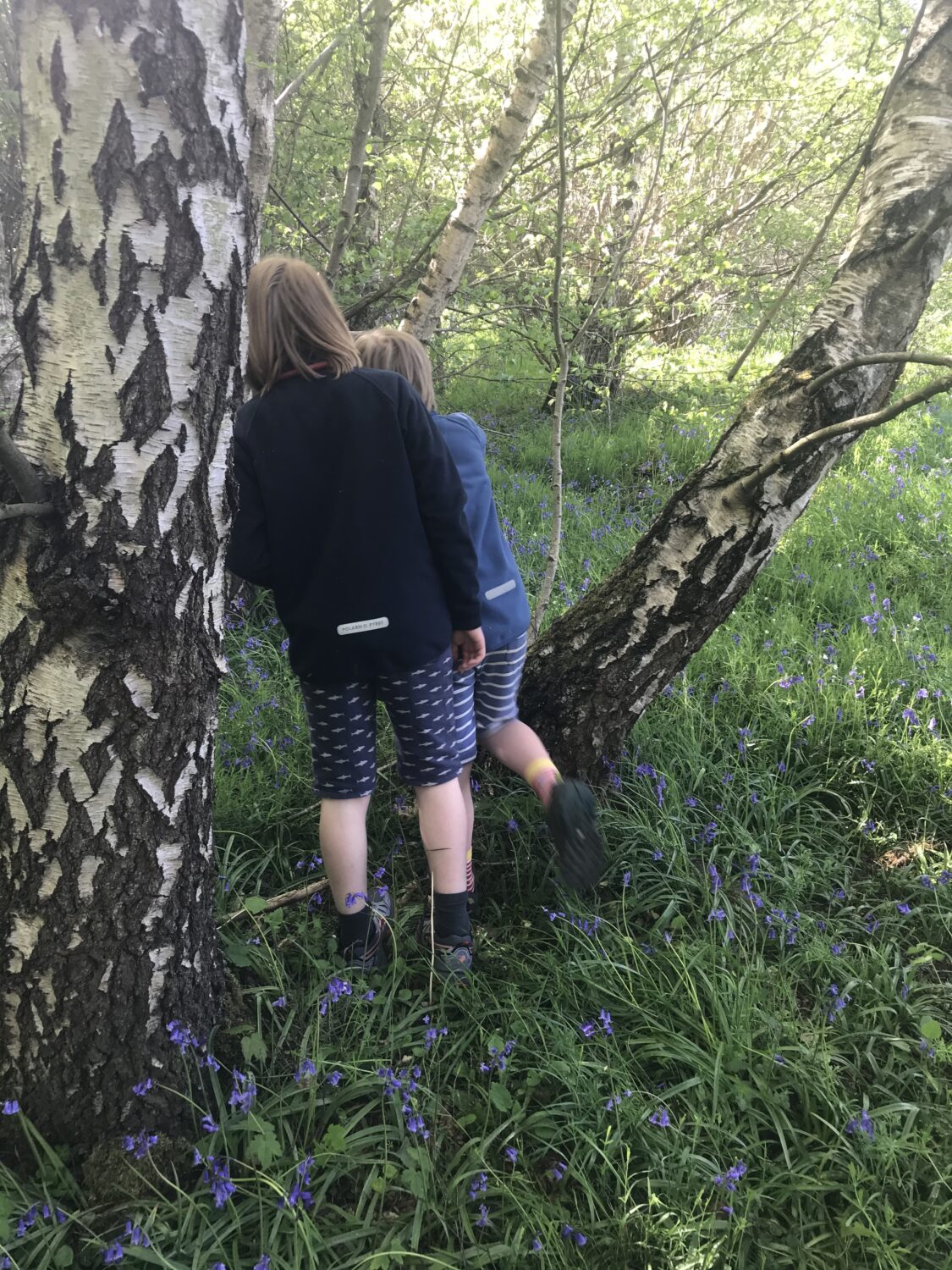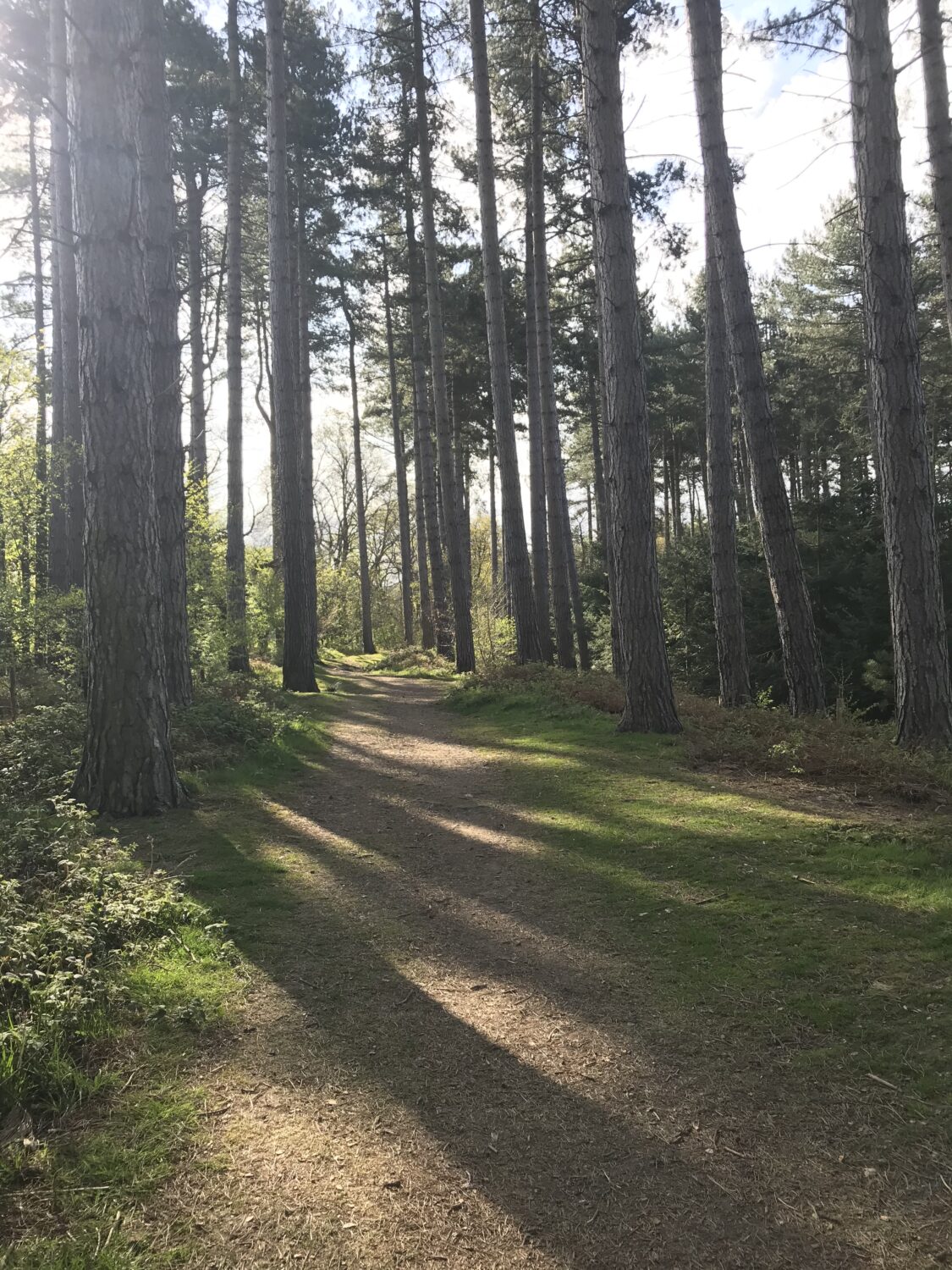From botany to bug hunts, for Jennie Maughan, lockdown meant time to explore the natural world with her young children.
We are fortunate to live in the beautiful Tyne valley and lockdown for me was spent working from home with my husband and two children. Our daily exercise time involved us going out as a family walking in the local woodland along with time playing in the garden. Each day for our walk, we followed a similar route, but every time we would notice something different. It turned out to be a wonderful opportunity for the children to really connect to their local environment. We spent our walks identifying all the wildflowers that were coming up around us such as the pretty, pink Herb Robert, Red Campion, Violets, Dog Rose, Wood Anemone and Wood Sorrel that coated the woodland floor. We took the time to stop for a while to play in the bluebells or climb up the gnarly old oak tree that we never quite had time to do before. The children learnt about all the different trees in the woodland and the birds that used it as their homes. There was always great excitement at finding an eggshell at the bottom of a tree and then looking up into the canopy to try to spot the nest it had come from.
With still no school in May the boys decided to camp out in the garden to be woken by the dawn chorus. Lying tucked up in sleeping bags listening to the bird song as the sun poured into the tent the children tried hard to identify the different birds who were singing out to tell all that they were up and ready to defend their territory.
As the days lengthened even more, we found ourselves waking up early, prompting us to head out straight away, down to Stocksfield burn. The burn is surrounded by woodland and early morning proved a good time to spot Roe Deer grazing close. A couple of times we were taken by surprise as we caught them sprinting across the path in front of us and into the fields beyond. In these fields we often saw a heron standing very still, at first we thought it was hunting for food, frogs maybe, but then we learnt that it could have also been just digesting its breakfast!
Bug hunts in the garden, involved lifting up rocks and old pieces of wood. The children’s fascination and enthusiasm when they spotted a woodlouse, earthworm or spider was infectious and never ending. One day they found a Crab Spider on a Daisy, something they would never have spotted had they not had the time to look, watching it lie in wait for some unsuspecting pollinating insect.
Our pond was a writhing mass of tadpoles at the start of the first lockdown. The children carefully removed four tiny tadpoles and placed them in a tank and bought it into the house. They read up on the lifecycle of a frog and used the FSC lifecycle guide to adapt the tank and feeding as the tadpoles grew. They excitedly checked the tank each morning to spot the tadpoles progress, especially in the later stages of their development. It surprised us all how quickly they could grow over night! In the end the boys had successfully raised 3 out of the 4 tadpoles – a much better success rate than if left in the pond with all the different threats that face a tiny tadpole, especially as we also have a thriving newt population! It was a proud moment for the boys as they released the three baby frogs hopping away into the undergrowth around the shallow pond margins.

Bird watching was another activity that happened most days. Sometimes from the lounge window sat on the sofa as the long tailed tits, coal tits, blue tits and great tits descended on the feeder full of sunflower seeds or watching the greater spotted woodpeckers at the feeder near the kitchen window as they ate their breakfast. The most successful bird watch was undertaken by Isaac who developed a slightly unusual position of lying on his back next to the bird feeder on our decking. He was fascinated by the comings and goings of the birds and spent many mornings bird watching in his pyjamas as the birds came and went completely unbothered by this child lying quietly down nearby. It developed for Isaac a real fascination with the garden birds, which then lead him to start sketching them too.
We now find ourselves in ‘Lockdown 2’. The weather started much colder than the last one with heavy snowfalls over the first few weeks so we embarked on another adventure, taking a different path for our daily exercise, heading up the hill towards Hedley to find the perfect sledging slopes! This new route and new weather gave us a glimpse into another world of wildlife. Something which may have passed us by had we had all our usual commitments of going to school and work as by the time we would be back home it would be too dark and us all too tired to head back out again.
Whilst carrying sledges on their backs the children tracked rabbits and deer in the snow (with the odd wolf print found too..). The most memorable encounter happened when our eldest spotted two Barn Owls flying low over a field on our way to the sledging slopes. The spectacle held the children’s attention and it was a long time before they remembered about the sledging they had come for.
As we approach the middle of March, and as the sun starts to shine, our thoughts turn to Spring and it feels as though we have come full circle in our yearlong Natural History lesson. Snowdrops are out in force and the buds on the trees are starting to take shape. It feels as though it will not be long before we are heading back into the woods carpeted in a sea of bluebells again.
Thankfully Mother Nature is still with us as each day dawns, providing us with much needed stability in our lives. My hope is that for my children, this time spent in lockdown has ingrained a love, a passion for nature that will always be in them. A spark that will make them stop and take notice, to care and grow up with a determination to look after our planet.
For my husband, and myself the enthusiasm and fascination with the natural world that grew for our children over lockdown as they had the time to explore was contagious. We are all certainly richer in knowledge and love for this wonderful world.
